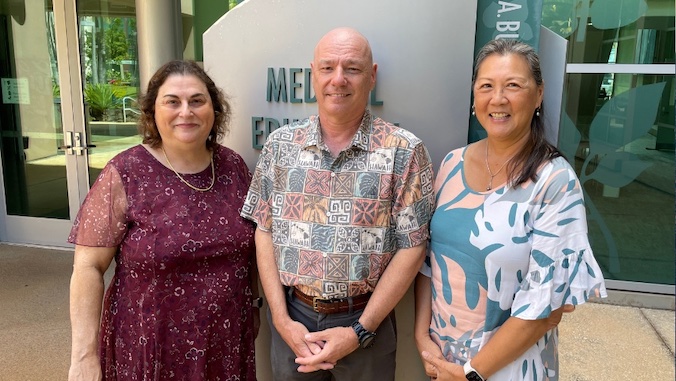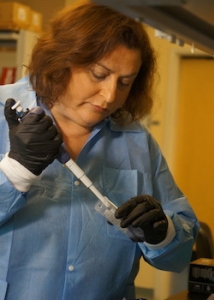
Diabetes affects 10% of Hawaiʻi‘s population, with another 37% living with pre-diabetes, according to the American Diabetes Association. To address this significant health issue, the University of Hawaiʻi at Mānoa’s John A. Burns School of Medicine (JABSOM) secured a $11.7 million National Institutes of Health (NIH) five-year grant renewal for its Diabetes Research Center, originally funded with $11.3 million in 2017.
“Living in Hawaiʻi, many of us have diabetes or know someone who has it, so it is our obligation as researchers in Hawaiʻi to investigate problems that affect the people of this state,” said Mariana Gerschenson, JABSOM associate dean for research and director of the Diabetes Research Center. “The renewal of this grant allows us to continue to do this critical research, and we are excited about starting Phase 2 of this research, which will explore the impact diabetes has on other parts of the body.”
Related story:$10.4M to UH researchers links environmental microbiomes to human health
Originally, the NIH-funded Centers of Biomedical Research Excellence (COBRE) grant enabled JABSOM to study the mechanisms behind diabetes and pre-diabetes using cell and animal models. This initiative also facilitated the training of five young investigators across UH Mānoa to continue to contribute to local research and education.
“This is a very exciting time for us to have the opportunity to give young people in Hawaiʻi an opportunity to study this abundant disease and its complications here at home,” said Majorie Mau, the center’s deputy director and professor in the Department of Native Hawaiian Health.
Impact on local community

The next research phase will focus on how diabetes leads to complications such as stroke, heart disease and kidney issues, with a special emphasis on Native Hawaiian and Pacific Islander populations, which are disproportionately affected by diabetes.
Gerschenson’s team includes JABSOM assistant professors Kathryn Schunke, who is researching diabetic cardiomyopathy; Stacy Brown, who studies the genetics of diabetes and stroke among Native Hawaiians and Pacific Islanders; and Noemi Polgar, who investigates glucose transport in skeletal muscle. Additionally, Tyler Ray, assistant professor from UH Mānoa’s College of Engineering, is developing wearable technology to monitor kidney function.
The renewal of the grant not only supports ongoing research but also boosts Hawaiʻi’s economy. According to the United for Medical Research report, every dollar received in grants adds $2.46 in new economic activity. The funding supports the recruitment and development of new faculty and young investigators, ensuring the continuation of innovative diabetes research and education at JABSOM and across UH.

